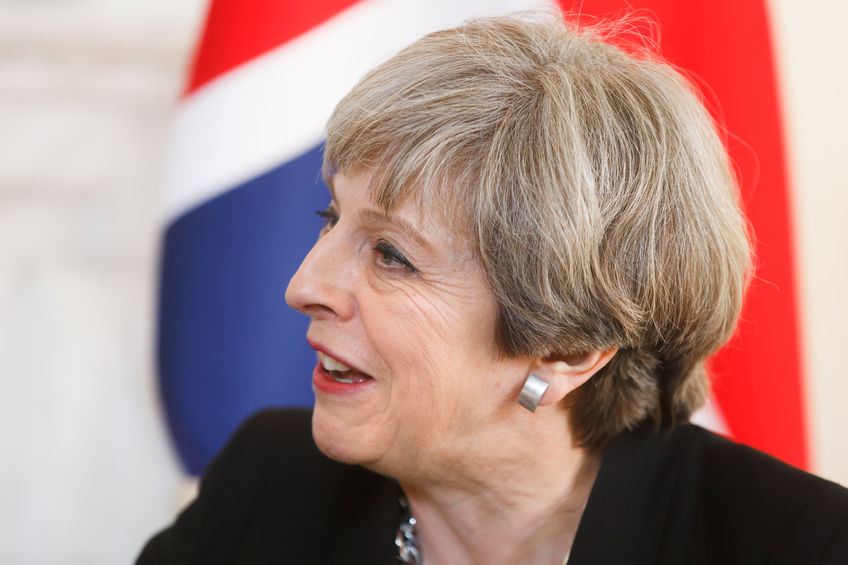
The Prime Minister has promised proposals for a two-year transition period after Britain leaves the EU in March 2019.
In her landmark speech in Florence, Theresa May said she wants existing EU market access arrangements to apply during that period and promised Britain would pay its "fair share" into the EU budget.
She said the UK will be the "strongest friend and partner" of the EU after Brexit.
She indicated freedom of movement would also continue during the transition but workers coming into the UK would go through a "registration system".
May also said she wanted a “creative” approach to forming a new UK-EU trade relationship, and that neither Canada nor Norway were attractive models.
Ms May said: "Clearly people, businesses and public services should only have to plan for one set of changes in the relationship between the UK and the EU.
"So during the implementation period access to one another’s markets should continue on current terms and Britain also should continue to take part in existing security measures. And I know businesses, in particular, would welcome the certainty this would provide.
"The framework for this strictly time-limited period, which can be agreed under Article 50, would be the existing structure of EU rules and regulations."
'Important stability'
The Prime Minister’s commitment to a transitional period will provide "important stability" for farm businesses, the NFU says, and prepares the ground for both sides to make progress in Brexit negotiations.
However, the farming union said more details are needed if farmers and growers are to have the certainty to plan and invest in their businesses in the future.
NFU President Meurig Raymond said: “Farmers and growers are becoming increasingly alarmed at the prospect of a “no deal” departure from the EU. The resulting disruption to trade, access to labour and business stability would pose a fundamental threat to the viability of many of their businesses.
“The implementation period that the Prime Minister spoke of will be crucial if we are to reach a Brexit settlement that backs British farming, although we await further details on exactly how such a transition will work.
“We believe at least two years is needed to ensure a smooth Brexit, while also agreeing a future relationship between the EU and UK which recognises their mutual importance in terms of trade.
“We were pleased to hear the Prime Minister say there is no intention to impose tariffs where none currently exist, which the NFU takes as a strong commitment to securing a free trade deal with the EU,” Mr Raymond said.
'Provides certainty'
Rural organisation the CLA, which represents farmers and landowners, said it welcomes the two-year traditional period.
President Ross Murray said: “We welcome the confirmation of a two-year transition period once the UK leaves the EU in 2019 so that farmers can continue to trade their food products without being penalised.
“This is a necessary time which will provide certainty for farming businesses while the right trade agreements are put in place. It is vital that free and frictionless trade in agri-food products is maintained during this period to help farmers plan for the future outside of the EU.
“The transition is also critical to ensure that a new policy to support farming and the environment in the long-term can be developed and tested fully which will inevitably take time.”
'Vital'
Earlier this month, the British sheep industry released a joint statement explaining that a transition period was 'vital' to protect the sector.
The sheep industry employs some 34,000 people on farms and a further 111,405 jobs in allied industries, contributing a £291.4m to employment.
This burgeoning industry, which farmers say must be protected when the UK leaves the EU, spurred on fourteen leading farming organisations to write to the government urging continued membership of the customs union after Brexit.
Phil Stocker, chief executive of the National Sheep Association (NSA) said that if the UK lost access to the Single Market, tariffs to the EU could be so high that exporting lamb to them would simply not work.
“The big question mark is access for UK lamb to the European Single Market. At the moment about 35 per cent of our production would be exported and virtually all of that - 96 per cent - would go into the European Single Market tariff free at the moment,” explained Mr Stocker.
The biggest European market for British lamb is France, Mr Stocker highlighted.
'Clock is ticking'
The UK's main food and drink industry's body has also cautiously welcomed today's announcement.
Food and Drink Federation (FDF) Director General, Ian Wright CBE said the "clock is ticking" and businesses need time to plan and prepare.
“The intention to negotiate an implementation phase based on our current arrangements with the EU27 is a welcome step in helping businesses manage the ongoing uncertainty,” Mr Wright said.
“Our firms face difficult investment decisions and there is a huge amount of work to be done in a short space of time. The onus is on the UK Government and the EU to demonstrate concrete progress by the time of the October European Council to reassure business and consumers.
“As the UK’s largest manufacturing sector, food and drink is vital to the country’s prosperity. If we are to feed the country in the way UK consumers have come to expect and enjoy, we must have this transition period which minimises any disruption and requires only one point of change.
“Transition must include continued access to our valued EU workforce, a stable regulatory regime, frictionless customs and trade, and a practical solution to Irish border issues.”
